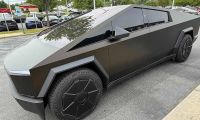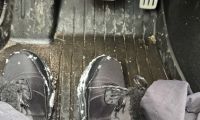The sole engineer charged in the Dieselgate scandal received reprieve of sorts from the courts as the judge sitting on the case delayed his sentencing for three months. James R. Liang, a German citizen who lives in Newbury Park, Calif., pleaded guilty last September to charges of conspiracy to commit wire fraud and U.S. clean air law violations.
Liang, a 34-year Volkswagen employee, helped to develop the diesel engine at the heart of the emissions rigging scandal. The Justice Department brought the charges in September.
Original Sentencing Date
Liang’s original sentencing was set for Feb. 1. However, U.S. District Court Judge Sean Cox delayed the sentence Tuesday to May 3 “to allow more time for defendant’s cooperation in the investigation.” In his court finding, Judge Cox said that Liang is cooperating in “the investigation and the potential prosecution of others.”
The veteran VW engineer worked in engine development in Germany in 2006. He was on the team that developed the EA189 turbodiesel engine for Volkswagen’s TDI series of Golfs, Jettas and Passats. According to the indictment, Liang was one of the engineers who developed the “defeat device” that enabled the inherently dirty engine to pass emissions testing.
The Wolfsburg engineers realized in 2006 that the powerplant wouldn't meet the twin goals of air quality and consumer popularity. The engine apparently could be optimized for one or the other but not both. As a result, the engineering team installed the “defeat device” that allowed the powerplant to appear clean, while it was emitting up to 40 times the allowable limits of nitrous oxide (NOx), a primary diesel pollutant.
No Comment All Around
According to Reuters, Liang’s attorneys did not comment. The Justice Department and Volkswagen also declined to comment.
Volkswagen’s self-inflicted emissions scandal has been costly to the automaker. So far, VW has agreed to spend up to $17.5 billion to resolve federal, state and owner claims on the affected vehicles. The affected vehicles use the 2.0-liter, four-cylinder EA189 turbodiesel. There is another group of turbodiesels whose settlement was achieved only last month, 3.0-liter V-6 engines. VW reached a $1 billion settlement. The automaker offered to buy back 20,000 vehicles and to repair the remaining 60,000 vehicles involved. The makes included in this agreement are VW, Porsche and Audi. 3.0-Liter VW Settlement Details
Talks are also ongoing in efforts to settle a U.S. Justice Department criminal probe, as well as federal and state environmental claims soon.
Source: Reuters, Automotive News
Set as google preferred source











